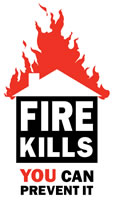Adur Homes - Fire safety
Adur Homes Fire Safety Policy

As the landlord, Adur Homes is responsible for ensuring that all our tenants and leaseholders and anyone else who use our properties are not exposed to unnecessary risks which may result in a fire.
You can read our Fire Safety Policy here:
Fire safety advice for your Adur Homes property

If you live in a block or share a hallway with other residents a Fire Action notice should be displayed in your building, advising you on what to do if there's a fire in the property. It's important that you and other members of your family familiarise yourself with these instructions so you can act quickly and calmly in the event of a fire.
As we continue to invest in fire safety measures across the Adur Homes portfolio of properties, the specific fire safety advice for your property may change. In this case we will write to you individually, so you are aware of the most current and appropriate action to take.
Please see the attached leaflet for important fire safety information and fire prevention tips for all Adur Homes residents:
Advice for leaseholders
If you are a leaseholder it's your responsibility to ensure that any fire that starts in your home does not then spread into the rest of a block.
Fire doors help to slow the progress of a fire, confining it to a specific location for longer and allowing people to find alternative escape routes. The front door to your flat not only protects you and your household, but protects people escaping from the building as well.
The requirements of fire doors have changed over time and we have recently completed a fire risk assessment of doors in all our properties to ensure they meet the necessary fire regulations. If your door did not meet the necessary fire safety criteria we would have contacted you to ask that it be replaced.
Communal areas
Adur Homes has a zero tolerance policy regarding items left in communal areas, including connecting corridors, landings, stairwells, lobbies, meeting rooms or common rooms.
These areas must always be kept clear and not used to store items that may create a potential obstruction or hazard in an event of fire, preventing people from safely evacuating the building and hindering the efforts of the emergency services.
Controlling the presence of combustible materials and ignition sources also reduces the potential for accidental fires starting in communal areas, as well as significantly reducing the scope for deliberate fires.
Your tenancy agreement states that you must not place or erect anything in shared areas and that you must not dump or leave rubbish, litter or other items in any common way, either inside or outside the building.
Common obstructions and fire hazards in internal communal areas include, but are not limited to:
- rubbish and items awaiting disposal
- furnishings such as tables, mats, ornaments, curtains and flower pots
- bicycles, motorbikes, scooters and mobility scooters
Any item left in the communal areas will be labelled with a sticker by our officers, advising that it must be removed within 24 hours. Anything which is not removed within this time, or reappears at a later date, will be removed and disposed of without further warning. We will recharge if there is any cost attributed as a result.
Tenants and leaseholders are also not permitted to leave personal items in communal gardens as they can also be a trip hazard and the grounds are for the benefit of all residents.
Objects or furnishings which are placed in external communal areas should not be left unattended and must be removed at the end of the same day. This includes items such as barbecues, paddling pools, trampolines and chairs. Objects which are left outside in communal areas for any longer will be removed and disposed of.
Report items left in the communal hallways
You can report an item left in a communal hallway in one of the following ways. If possible please include a photograph to assist us in arranging for the item to be removed as quickly as possible:
- email adurhomes@adur-worthing.gov.uk
- call us on 01273 263030
Fire evacuation procedures
Please refer to the relevant procedure below:
If your block has an alarm:
If your block does not have an alarm:
Fire prevention tips
It's important for you to take steps to reduce the risk of a fire in your home, including fitting a working smoke alarm on every floor of your home and ensuring that everyone in your household knows what to do in the event of a fire.
For more advice please see:

Need assistance with this service?
Get in touch:
Adur Homes
Problem with this page?
Page last updated: 27 January 2022


